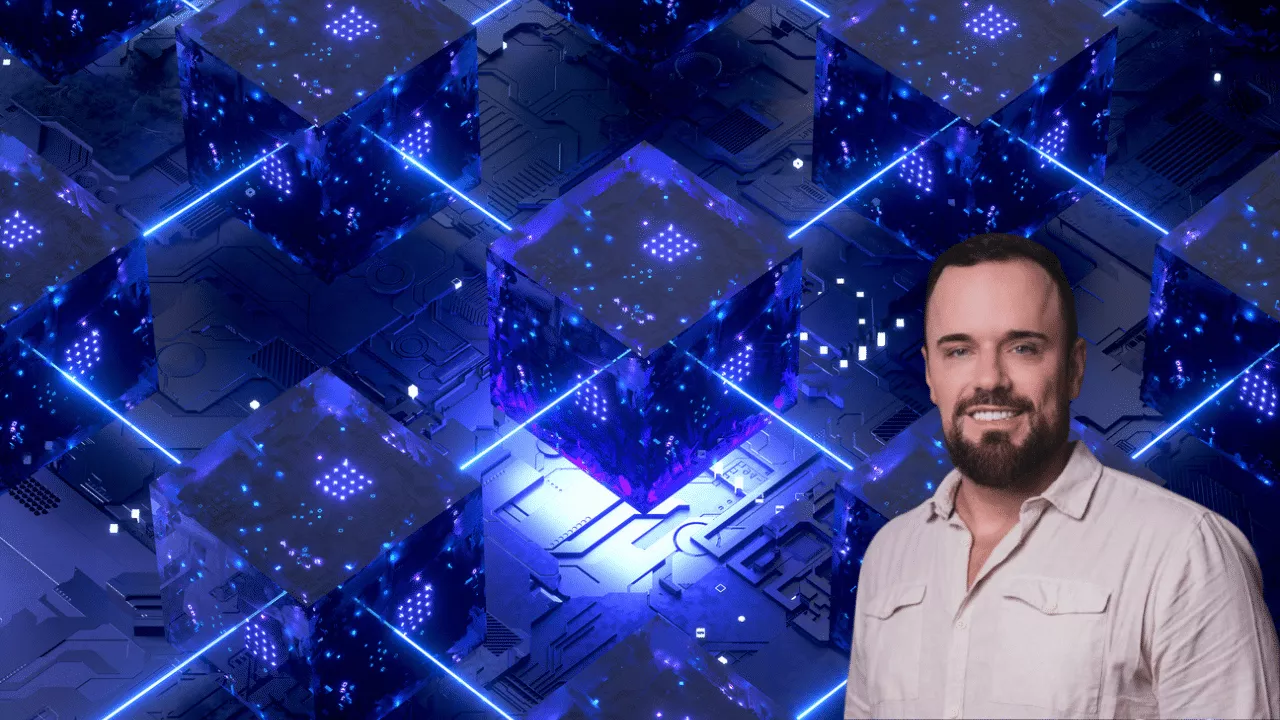
Blockchain technology has become synonymous with cryptocurrencies like Bitcoin, but its usefulness extends far beyond the financial world. Blockchain is a decentralized structure that ensures security, transparency, and traceability—features that have transformed various sectors of the economy and society.
In this article, we'll explore how blockchain is revolutionizing areas such as healthcare, logistics, governance, and even the entertainment industry, highlighting innovative and practical applications of this technology. The growth in blockchain use is a direct response to the need for more efficient and secure processes.
However, many people still associate this technology exclusively with the digital asset market. This misconception limits understanding of blockchain's disruptive potential to solve problems across a variety of industries.

Throughout this article, you'll learn how blockchain is being applied in surprising ways, with practical examples and a detailed tutorial to help you understand how to benefit from this technology. Get ready to expand your vision of what blockchain can offer the world.
One of the sectors that has benefited most from blockchain is the supply chain. The technology allows products to be tracked from their origin to the end consumer, ensuring transparency at every stage. This is particularly relevant in industries such as food and pharmaceuticals, where product authenticity and quality are crucial.
Companies like Walmart and Nestlé are already using blockchain to track food, reducing the time to locate contaminated products from days to seconds. This level of transparency not only increases consumer confidence but also helps combat fraud and improve logistics efficiency.
Furthermore, blockchain reduces operational costs by eliminating intermediaries and automating processes through smart contracts. These innovations have the potential to transform supply chains into safer and more agile ecosystems.
In healthcare, blockchain has played a vital role in protecting patient data and streamlining clinical processes. With the increasing digitization of medical records, security and privacy concerns arise. Blockchain, with its decentralized and tamper-proof architecture, offers an effective solution to these challenges.
For example, the use of blockchain can ensure that only authorized professionals have access to a patient's medical data, eliminating the risk of privacy breaches. Furthermore, it enables interoperability between healthcare systems, facilitating the secure exchange of information between hospitals, clinics, and laboratories.
Another relevant application is in medication tracking, combating counterfeiting and ensuring patients receive authentic and effective treatments. This is especially important in regions with high rates of drug smuggling.

Public governance is a field fraught with challenges, including corruption, lack of transparency, and inefficiency. Blockchain emerges as a powerful solution for increasing trust and citizen participation in democratic processes.
One of the most promising applications is blockchain-based electronic voting. This technology ensures that each vote is unique, immutable, and verifiable, eliminating electoral fraud and making the process more accessible. Countries like Estonia have already adopted similar solutions, achieving high levels of participation and trust in the electoral system.
Furthermore, blockchain can be used to manage public contracts and allocate resources transparently, reducing the risk of corruption and increasing the efficiency of government services.
The entertainment industry is also being impacted by blockchain, especially with regard to copyright protection and fair pay for content creators. With blockchain, artists, musicians, and writers can register their works on an immutable network, securing intellectual property instantly and globally.
Platforms like Audius and Ujo Music use blockchain to connect creators directly with their audiences, eliminating intermediaries and ensuring that royalties are paid fairly and immediately. This decentralization empowers artists, promoting greater financial sustainability in the industry.
Additionally, blockchain is used to create NFTs (non-fungible tokens), which allow digital works to be monetized in a unique way, opening up new opportunities for artists and collectors.
Verifying educational certificates is a common problem in many parts of the world, due to forgery and difficulties in authenticating credentials. Blockchain offers an efficient solution, allowing educational institutions to issue digital certificates that can be instantly verified by employers and other organizations.
For example, universities can register diplomas on the blockchain, ensuring that graduates' credentials are fraud-proof. This approach not only increases the credibility of institutions but also streamlines recruitment and admissions processes.
Additionally, blockchain can be used to track students' progress in online courses, recording achievements and acquired skills transparently and securely.
If you want to start exploring the possibilities of blockchain, follow these simple steps:
Blockchain is much more than just the technology behind cryptocurrencies. It is transforming various industries, offering innovative solutions to complex problems and creating opportunities for individuals and businesses. By adopting blockchain, organizations can benefit from greater transparency, security, and efficiency, while individuals discover new ways to interact and create value.
Harnessing the potential of blockchain requires knowledge and experimentation. With the information and tutorial provided in this article, you're ready to take your first steps into this revolutionary universe. The future of blockchain goes far beyond cryptocurrencies—it's in your hands.